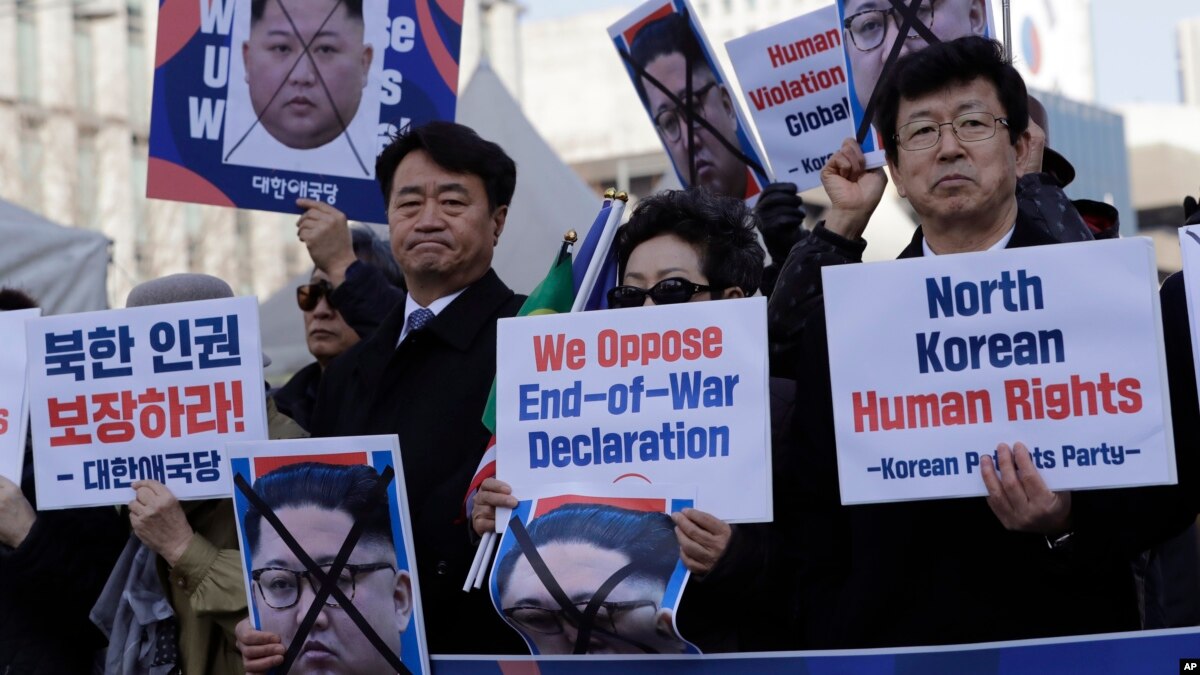
North Korean defectors surveyed by a Seoul-based human rights NGO say there is unlikely to be accountability for past abuses without a complete change of regime in the North, and many say international courts should eventually have a robust role in trying those “most responsible” for victimizing ordinary North Koreans.
The survey, made public this week by the Transitional Justice Working Group, questioned more than 450 North Korean escapees who have been active in the human rights civil sector between 2015 and 2019. More than half of them arrived before Kim Jong Un assumed power from his father, Kim Jong Il, in 2011. Ten respondents were interviewed in depth to complement the broader survey.
Physical or psychological consequences
Nearly 48 percent (47.7 percent) of the respondents said they had experienced physical violence directly at the hands of the state. More than 75 percent (75.4 percent) said they were victims of “wider harm,” including the loss of a close family member to execution or starvation, forced repatriation to North Korea from another country, and arrest or detention by the North Korean authorities. In addition, 63.4 percent indicated they still struggle to this day with the physical or psychological consequences of their time in North Korea.
Nearly half of the respondents, or 45.9 percent, called for an international court based in a future unified Korea to hold trials for past abuses. Most of the other respondents were in favor of a either a hybrid court or an all Korean court.
TJWG Research Director Sarah Son, who authored the report, said defectors are practical in their understanding of what's possible in terms of the legal system's capacity. "One interviewee said 'we cannot prosecute everyone who committed crimes under the North Korean regime,'" Son said. 'We should prosecute based on the seriousness of the crime. Some officials did things because they were forced to do them, even though they did not want to do so,'" she quoted the interviewee as saying.
The rationale for an international court, says the report, is that Korean judges may see the accused as ethnic “brethren” and thus be too lenient. A number of respondents cited concerns that South Koreans lack recent historical experience of grave human rights abuses, posing a possible obstacle to achieving consensus about means of pursuing justice.
Researchers say the survey is a small step toward establishing a grassroots civil society approach toward holding North Korean perpetrators of human rights abuses accountable as North Korea transitions and reunification becomes a more imaginable possibility.
That remains a challenge, as many North Korean defectors arrive in the South with little or no conceptual framework of individual human rights, and others have security concerns. “Eighty-four percent of the respondents said they are fearful of participating in human rights work focused on North Korea,” Son said. "Primarily because they have concerns for the safety of family members remaining in North Korea."
The report points to various tools of transitional justice that received broad support from the respondents. Financial compensation was considered very important by 70.1 percent; criminal prosecutions by 75.8 percent; official apologies by 76.9 percent; and non-judicial truth-telling by 82.9 percent. An overwhelming 91.5 percent of respondents supported the exhumation of mass burial sites.
Such tools have been implemented in other countries that have experienced atrocities, such as Poland, the native country of Joanna Hosaniak, Deputy Director of the Seoul-based Citizen's Alliance for North Korean Human Rights. She leads groups of North Korean University Students on tours of Eastern Europe, with stops at secret police archives and concentration camps like Auschwitz.
"One student said it was really a healing process," Hosaniak said. "Seeing the commonality of pain was the most powerful thing that she's taking from that experience. The fact that they as North Koreans are not alone, they have never been alone, and the whole idea that the country can transform itself, and yet be in the past in a way, remembering the past and having such powerful policies in terms of processing that past-- that this is possible gave them hope for the Korean peninsula."

No comments:
Post a Comment